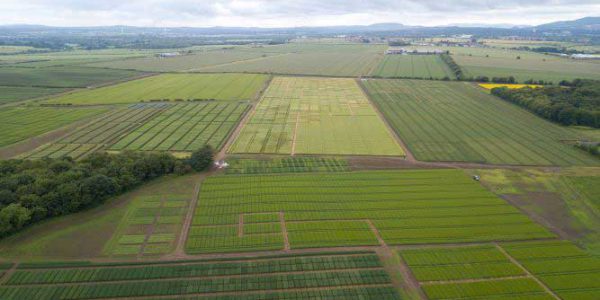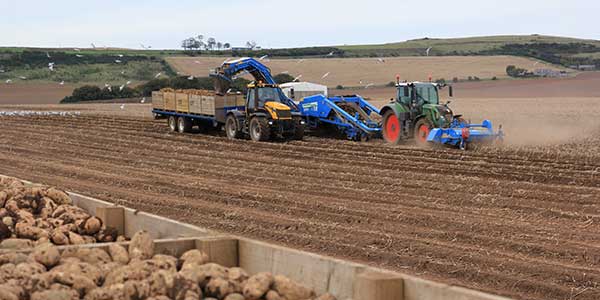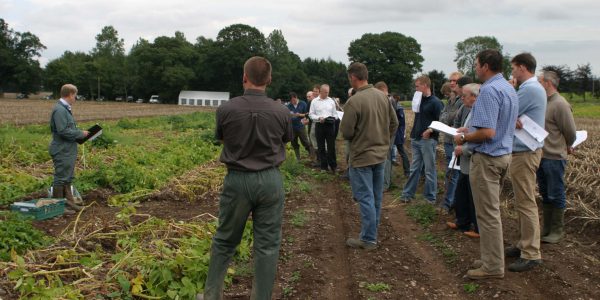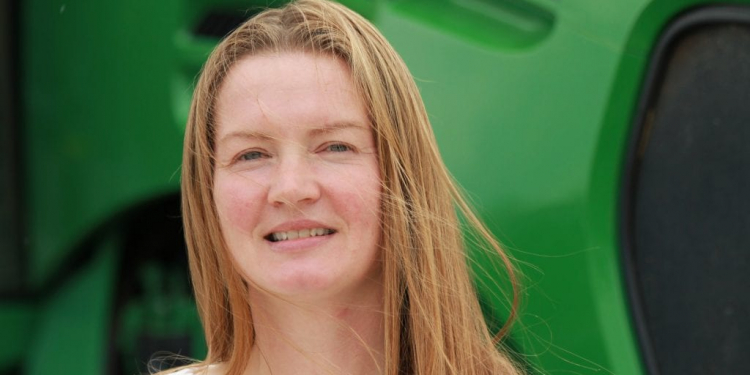A 4th generation farmer at Wester Braikie Farms, Arbroath, Angus.

Farm of about 320 hectares, 40 hectares typically dedicated to potatoes, 60 hectares of barley, 60 hectares of winter oilseed rape and roughly 120 hectares of wheat. On the rest of the land there is around 25 hectares of woodland and 14 hectares of greening comprising field margin, new hedges, fallow, and a small area of permanent grass.
Not including the family farm partnership, there are 2 full time staff, which have been with them for 30 years. She believes the core of family farming is trust, good working relationships, and everyone having a role to fulfil. Having motivated and trustworthy staff on the farm lets her spend much of her time planning and overseeing the farming business, and allows her to look and plan ahead.

Amy’s farm relationship to Scottish Agronomy is that of a 1 to 1 with Eric Anderson. She very occasionally will attend group meetings (Strathmore). They have been members for over 20 years.
They chose to stay with Scottish Agronomy for a number of reasons; they appreciate the independent agronomy advice; they value the ability to price the market when buying products and not being tied down to a manufacturer. They also see huge benefits to the quality of the advice they are given; they trust their agronomists and the co-operative, and they get good results from the agronomy advice on the farm.

Through being members of Scottish Agronomy Wester Braikie Farms has had good results on farm, as well as access to the latest information, whether that be on seed, fertilisers, chemicals, IPM etc. They also recognise that at Scottish Agronomy the large programme of replicated field trials provides the basis for informed on-farm advice.
The impact of good agronomy advice is ongoing, there is not a magical solution, but rather a collective of good, evidence-based advice that impacts the farm long term. Amy appreciates that it is this advice that has led to real cost saving.
She mostly deals with her designated agronomist Eric Anderson, but always has the option of talking to one of the other agronomists in the company. She finds the team at Scottish Agronomy effective and personable. She also works with Lynn in the office who puts together the NVZ planning for her.
At the farm, they have chosen to adopt 6-meter-wide grass margins round many fields. This has proven simple yet effective in many ways. As an option of greening proposed by the Scottish government, it has ticked off many boxes. Firstly, allowing greening targets to be met. Secondly, it helps avoid run off into watercourses if there is very heavy rain. It has also created a buffer zone when spraying and it has meant that they can have flexible cropping. She is aware that there is more that can be done in this region, and whilst there are no concrete plans, she does plan on down the line trying different seed mixtures to increase biodiversity and encourage beneficial insects etc.
About 4 years ago they decided to grown oil radish as a cover crop to try and control free living nematodes in some of their cereal land. She is aware that there are many factors that affect crops. However, since growing oil radish, she has seen an obvious positive impact on her yields. The problem has not completely disappeared and is aware that this will require a long-term approach.
She recommends people to be open minded and embrace change, in whatever sector they may be in. She also encourages people to not be afraid to ask for advice. She strongly believes that in such a fast-paced world we must learn to collaborate to keep ahead, and that is an ethos she sees in the co-operative of Scottish Agronomy.
She is proud of keeping (mostly!) on top of everything on the farm, she juggles family life (she has 2 young children) and running a successful farm business. She is proud to be a woman in agriculture.

Understandably, she is interested in the future of her farm and of agriculture. She is passionate about succession planning. Having been given the opportunity to get involved in her family business (although she was not the first in-line) she is a firm believer in passing down the farm to the most appropriate and keen which in some cases may be more than one person. She discussed that in these cases it may be important for farms to be flexible, potentially diversify the venture, or for people to take a job off farm (she did this in her early career whilst also working on farm when needed) and keep evolving.
She recognises that succession can be very hard, and she is delighted to have seen some shift from traditionally giving the farm to the oldest son. However, she believes that in this area agriculture still has a lot to do, and she herself having two children recognises that down the line she, her husband, and their family will have to make those decisions.








